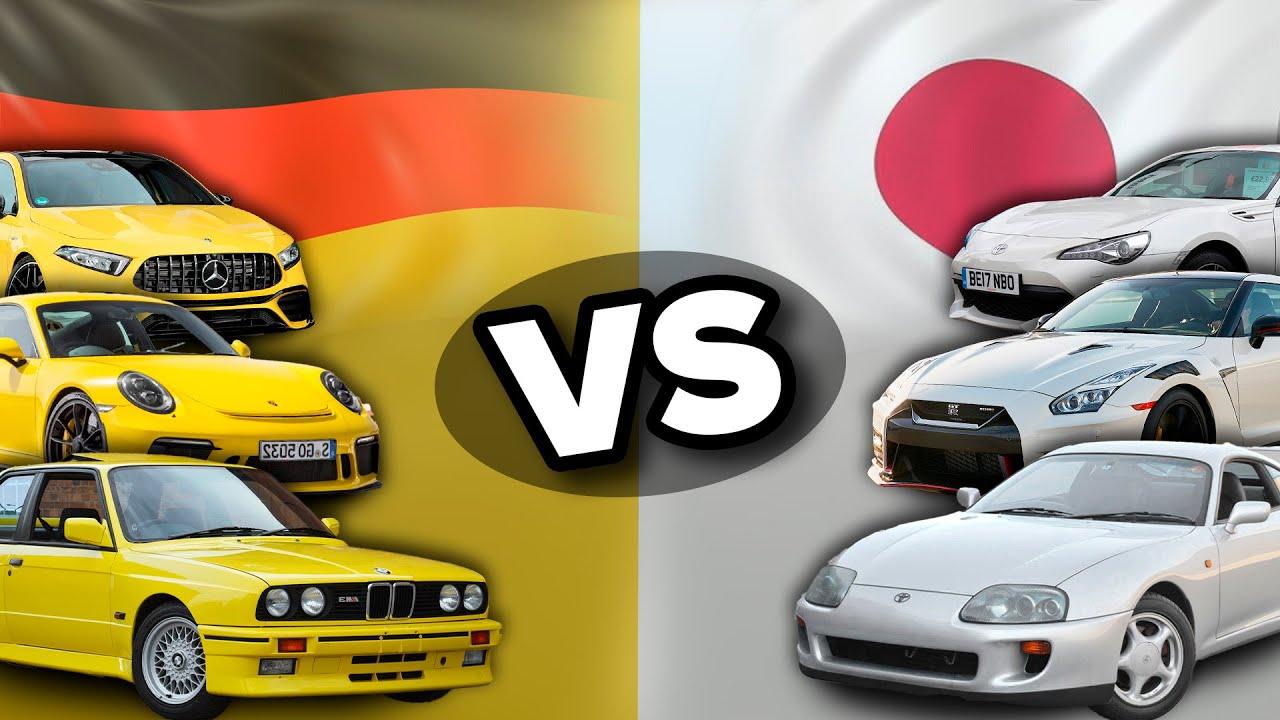-
Nieuws Feed
- EXPLORE
-
Pagina
-
Groepen
-
Events
-
Blogs
German vs Japanese Cars: Which Offers Better Reliability?

When it comes to German vs Japanese cars, the debate has been raging for decades. Both automotive giants are known for precision, performance, and engineering excellence but when it comes to reliability, which one truly stands out? Whether you’re a car enthusiast or just someone looking for a dependable ride, understanding how these two powerhouses differ can save you time, money, and frustration.
At SAT Japan, we’ve helped countless car buyers make informed choices about their vehicles. Let’s take a closer look at how German and Japanese cars stack up in terms of reliability, performance, and long-term value.
The Engineering Philosophy: Precision vs Practicality
German automakers like BMW, Mercedes-Benz, and Audi focus on high-performance engineering and luxury. Their cars are often packed with advanced technology, turbocharged engines, and complex systems designed to deliver exceptional driving dynamics.
Japanese manufacturers such as Toyota, Honda, Nissan, and Subaru take a different approach. They emphasize simplicity, efficiency, and longevity. Japanese vehicles are engineered to be easy to maintain and resilient under all conditions.
In short:
-
German cars chase perfection and driving pleasure.
-
Japanese cars pursue practicality and reliability.
This difference in philosophy influences everything from manufacturing to repair costs.
Reliability: The Real-World Test
When drivers discuss German vs Japanese cars, reliability often becomes the deciding factor. German brands produce stunning machines, but they can be high-maintenance. Advanced engineering comes with complex electronics and specialized components that may fail or require expensive repairs over time.
Japanese cars, on the other hand, have built a rock-solid reputation for being virtually indestructible. Brands like Toyota and Honda consistently top global reliability rankings. It’s not uncommon to see a Toyota Corolla or Honda Accord easily surpass 300,000 kilometers with minimal issues.
Why Japanese cars win on reliability:
-
Simpler engineering and proven designs
-
Affordable and widely available parts
-
Lower maintenance frequency
-
Consistent quality control across factories
German cars may offer tighter steering and more refined interiors, but when something breaks, repairs can be both time-consuming and costly.
Maintenance Costs and Ownership Experience
One key factor that separates German vs Japanese cars is the cost of ownership. German vehicles often require specialized tools, software diagnostics, and premium parts meaning that even a minor service can dent your wallet.
Japanese vehicles, by contrast, are designed with ease of serviceability in mind. Mechanics worldwide are familiar with their systems, and replacement parts are much more affordable. That translates to fewer headaches and lower long-term costs.
To put it simply:
-
German cars: Great to drive, expensive to maintain.
-
Japanese cars: Easy to own, cheaper to maintain.
If you value convenience and cost efficiency, Japanese cars are the clear winner.
Longevity and Resale Value
Japanese cars have an uncanny ability to age gracefully. Even after a decade, a well-maintained Toyota or Honda can retain strong resale value. German vehicles, while stylish, may experience depreciation faster due to higher repair costs and complex electronics that can wear out over time.
This is why markets for used Japanese cars are booming worldwide especially through exporters like SAT Japan, where buyers can find high-quality used vehicles at reasonable prices.
A used Japanese car isn’t just affordable it’s an investment in peace of mind.
Performance and Driving Experience
Of course, reliability isn’t everything. If you’re passionate about the art of driving, German vehicles still reign supreme. Their handling, balance, and road feedback are unmatched. A BMW 3-Series or Audi A4 delivers an exhilarating experience that few Japanese sedans can rival.
Japanese cars, though, have made great strides in performance, especially with models like the Nissan GT-R or Lexus IS. Yet overall, German cars continue to lead in terms of driving precision and luxurious feel.
So, while Japanese cars dominate in reliability, German cars often capture the heart of those who crave performance and prestige.
Verdict: Which Should You Choose?
When comparing German vs Japanese cars, it really depends on your priorities:
-
Choose Japanese cars if you value reliability, fuel efficiency, and low maintenance costs.
-
Choose German cars if you prioritize performance, technology, and luxury features.
For most everyday drivers, Japanese vehicles offer better long-term satisfaction and lower ownership costs especially if you’re buying pre-owned.
At SAT Japan, we specialize in exporting quality-checked Japanese cars worldwide. Each vehicle undergoes a rigorous inspection process to ensure it meets the highest reliability standards. Whether you’re shopping for a Toyota, Honda, or Subaru, SAT Japan makes it easy to find a dependable car that fits your lifestyle and budget.
Final Thoughts
The German vs Japanese cars debate might never end, but one truth stands firm: Japanese cars are the champions of reliability and value. They’re built to last, simple to maintain, and perfect for drivers who appreciate peace of mind.
Meanwhile, German cars deliver a driving experience that’s hard to forget but comes with a premium price tag for maintenance.
No matter which side you favor, the key is to choose a vehicle that matches your needs. And if dependability tops your list, SAT Japan is here to help you drive home a car that will go the distance.
- Art
- Causes
- Crafts
- Dance
- Drinks
- Film
- Fitness
- Food
- Spellen
- Gardening
- Health
- Home
- Literature
- Music
- Networking
- Other
- Party
- Religion
- Shopping
- Sports
- Theater
- Wellness


